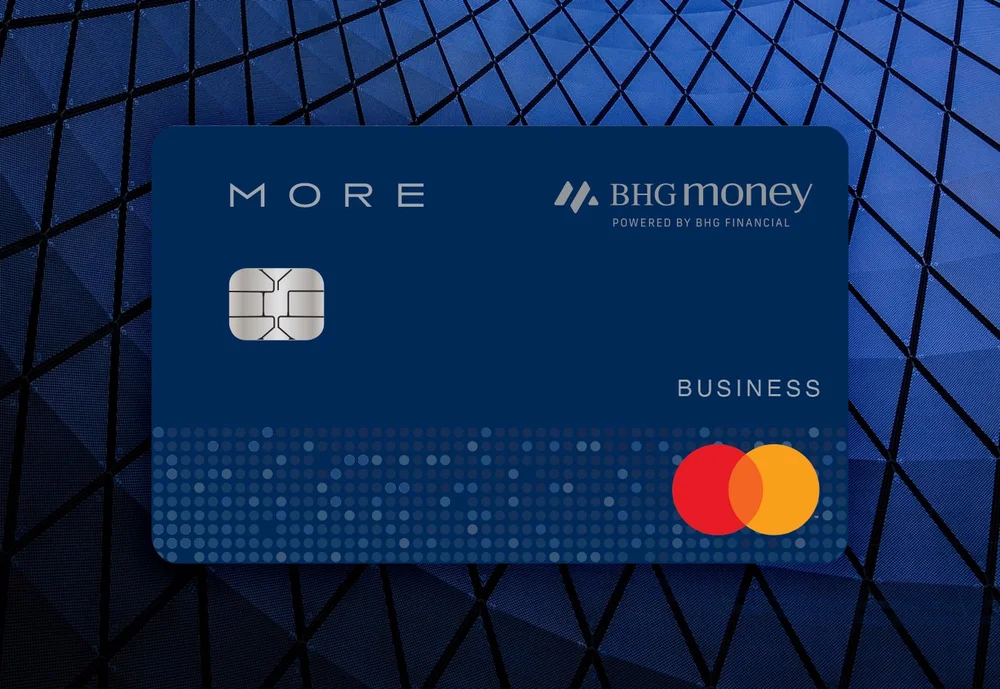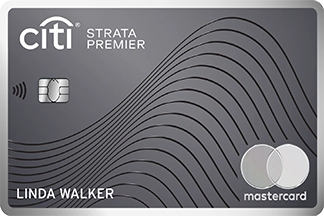- myFICO® Forums
- Types of Credit
- Credit Card Applications
- Re: Question about maximum exposure with Citi
- Subscribe to RSS Feed
- Mark Topic as New
- Mark Topic as Read
- Float this Topic for Current User
- Bookmark
- Subscribe
- Mute
- Printer Friendly Page
Question about maximum exposure with Citi
Is your credit card giving you the perks you want?
Browse credit cards from a variety of issuers to see if there's a better card for you.
- Mark as New
- Bookmark
- Subscribe
- Mute
- Subscribe to RSS Feed
- Permalink
- Report Inappropriate Content
Question about maximum exposure with Citi
This is possibly a dumb question, so I apologize, but I am wondering....
Do you think that lenders (say: chase, citi, discover, etc) have a maximum amount of credit (maximum exposure?) they will give you at any given time, whether that is all on one card...or multiple cards?
I am wondering this, because I applied for a CLI on my Citi DC. I have had the card since 2015. Started with around a 5000 limit if I recall correctly. I jumped from 5000 to 7600 to 9500 pretty fast. Stayed at 9500 for a good 3 years. Then I finally broke through to 16,000 in August 2018. I basically maxed out the card last month and paid it all off a couple of days ago, so yesterday with almost a zero balance I applied again for another CLI through the mobile app (a soft pull) and was instantly approved for 23,000. There was an option to request more with a HP, so I took it and requested 30,000.
Then after my great success increasing my limit, I couldn't resist and app'd for some more cards.
I was approved for Citi Anywhere Visa with a SL of 4500.
Annnnd today I was denied for any additional credit with my Citi DC.
If I didn't apply for the citi anywhere visa, what is the chance that I would've received that 4500 additional credit from citi on my double cash card - bringing me to 27,500?
Kind of kicking myself now...I wish I had just waited.
The only thing that makes me unsure of this is because I know I have read about people being denied CLI on their current cards (for example Capital 1 Quicksilver), yet then applying for a different Cap1 and getting instantly approved with a decent or even high credit line.
Thoughts?
- Mark as New
- Bookmark
- Subscribe
- Mute
- Subscribe to RSS Feed
- Permalink
- Report Inappropriate Content
Re: Question about maximum exposure with Citi
@Anonymous wrote:This is possibly a dumb question, so I apologize, but I am wondering....
Do you think that lenders (say: chase, citi, discover, etc) have a maximum amount of credit (maximum exposure?) they will give you at any given time, whether that is all on one card...or multiple cards?
I am wondering this, because I applied for a CLI on my Citi DC. I have had the card since 2015. Started with around a 5000 limit if I recall correctly. I jumped from 5000 to 7600 to 9500 pretty fast. Stayed at 9500 for a good 3 years. Then I finally broke through to 16,000 in August 2018. I basically maxed out the card last month and paid it all off a couple of days ago, so yesterday with almost a zero balance I applied again for another CLI through the mobile app (a soft pull) and was instantly approved for 23,000. There was an option to request more with a HP, so I took it and requested 30,000.
Then after my great success increasing my limit, I couldn't resist and app'd for some more cards.
I was approved for Citi Anywhere Visa with a SL of 4500.
Annnnd today I was denied for any additional credit with my Citi DC.
If I didn't apply for the citi anywhere visa, what is the chance that I would've received that 4500 additional credit from citi on my double cash card - bringing me to 27,500?
Kind of kicking myself now...I wish I had just waited.
The only thing that makes me unsure of this is because I know I have read about people being denied CLI on their current cards (for example Capital 1 Quicksilver), yet then applying for a different Cap1 and getting instantly approved with a decent or even high credit line.
Thoughts?
You were denied for "additional credit" on your Citi Double Cash card because Citi has a hard rule that you must wait 180 days between credit limit increases. If your chronology is accurate, yesterday you used a soft pull and a hard pull to increase your limit to either $23 or $30k. Any requests after that would be automatically denied because 180 days had not elapsed since your last CLI.
But to answer your question, yes, there's a maximum limit a lender will be willing to extend. It typically depends on your internal score with the lender and includes factors like your profitability to that lender, and your income.
- Mark as New
- Bookmark
- Subscribe
- Mute
- Subscribe to RSS Feed
- Permalink
- Report Inappropriate Content
Re: Question about maximum exposure with Citi
I only requested more because it was in the same paragraph right after I was approved for 23k...offering that you could request for more if you took a HP. I didn't make any other requests after that. Why would they offer that option if it was too soon for another CLI?
- Mark as New
- Bookmark
- Subscribe
- Mute
- Subscribe to RSS Feed
- Permalink
- Report Inappropriate Content
Re: Question about maximum exposure with Citi
- Mark as New
- Bookmark
- Subscribe
- Mute
- Subscribe to RSS Feed
- Permalink
- Report Inappropriate Content
Re: Question about maximum exposure with Citi
Business use: Amex Bus. Plat., BBP, Lowes Amex AU, CFU AU
Perks: Delta Plat., United Explorer, IHG49, Hyatt, "Old SPG"
Mostly SD: Freedom Flex, Freedom, Arrival
Upgrade/Downgrade games: ED, BCE
SUB chasing: AA Platinum Select
- Mark as New
- Bookmark
- Subscribe
- Mute
- Subscribe to RSS Feed
- Permalink
- Report Inappropriate Content
Re: Question about maximum exposure with Citi
Yes, my scores took a pretty bad hit (dropped around 60 points!!) when I maxed out my citi card a month ago and the new zero balances have not reported yet. But I do have a high income, moderate 6 figures.
- Mark as New
- Bookmark
- Subscribe
- Mute
- Subscribe to RSS Feed
- Permalink
- Report Inappropriate Content
Re: Question about maximum exposure with Citi
@Anonymous wrote:Yes, my scores took a pretty bad hit (dropped around 60 points!!) when I maxed out my citi card a month ago and the new zero balances have not reported yet. But I do have a high income, moderate 6 figures.
As mentioned upthread, all lenders have an unsecured internal maximum. Just depends on the relationship, income, overall unsecured exposure plus other factors. You'll know when you've reached the max internally with Citi. Typically, anything above $100K may require POI.
- Mark as New
- Bookmark
- Subscribe
- Mute
- Subscribe to RSS Feed
- Permalink
- Report Inappropriate Content
Re: Question about maximum exposure with Citi
@Anonymous wrote:You were denied for "additional credit" on your Citi Double Cash card because Citi has a hard rule that you must wait 180 days between credit limit increases. If your chronology is accurate, yesterday you used a soft pull and a hard pull to increase your limit to either $23 or $30k. Any requests after that would be automatically denied because 180 days had not elapsed since your last CLI.
This is not the case when it comes to a Citi SP/HP. When you receive a SP CLI from Citi, immediately after receiving it you're prompted with HP language stating that if you'd like more, it would be considered only with a HP. In taking on that HP, if Citi grants you additional credit it is viewed as part of the same CLI as the SP received just prior. Many people have reported success in taking a HP immediately following a SP CLI with Citi. There is only a small window here between the SP and HP CLI I believe... perhaps only a few days, although I don't know for sure. After that, the HP language on the account will switch back to SP language, where any attempt made inside of 180 days will be met with a denial.
- Mark as New
- Bookmark
- Subscribe
- Mute
- Subscribe to RSS Feed
- Permalink
- Report Inappropriate Content
Re: Question about maximum exposure with Citi
- Mark as New
- Bookmark
- Subscribe
- Mute
- Subscribe to RSS Feed
- Permalink
- Report Inappropriate Content
Re: Question about maximum exposure with Citi
@Anonymous wrote:This is possibly a dumb question, so I apologize, but I am wondering....
Do you think that lenders (say: chase, citi, discover, etc) have a maximum amount of credit (maximum exposure?) they will give you at any given time, whether that is all on one card...or multiple cards?
I am wondering this, because I applied for a CLI on my Citi DC. I have had the card since 2015. Started with around a 5000 limit if I recall correctly. I jumped from 5000 to 7600 to 9500 pretty fast. Stayed at 9500 for a good 3 years. Then I finally broke through to 16,000 in August 2018. I basically maxed out the card last month and paid it all off a couple of days ago, so yesterday with almost a zero balance I applied again for another CLI through the mobile app (a soft pull) and was instantly approved for 23,000. There was an option to request more with a HP, so I took it and requested 30,000.
Then after my great success increasing my limit, I couldn't resist and app'd for some more cards.
I was approved for Citi Anywhere Visa with a SL of 4500.
Annnnd today I was denied for any additional credit with my Citi DC.
If I didn't apply for the citi anywhere visa, what is the chance that I would've received that 4500 additional credit from citi on my double cash card - bringing me to 27,500?
Kind of kicking myself now...I wish I had just waited.
The only thing that makes me unsure of this is because I know I have read about people being denied CLI on their current cards (for example Capital 1 Quicksilver), yet then applying for a different Cap1 and getting instantly approved with a decent or even high credit line.
Thoughts?
Citi definitely has a maximum overall exposure set for each customer. This is why I don't apply for a CLI on one card, where I could almost definitely get one, because I really want a CLI on the other card, and don't want to jeopardize my chances there.































Total revolving limits 568220 (504020 reporting) FICO 8: EQ 689 TU 691 EX 682